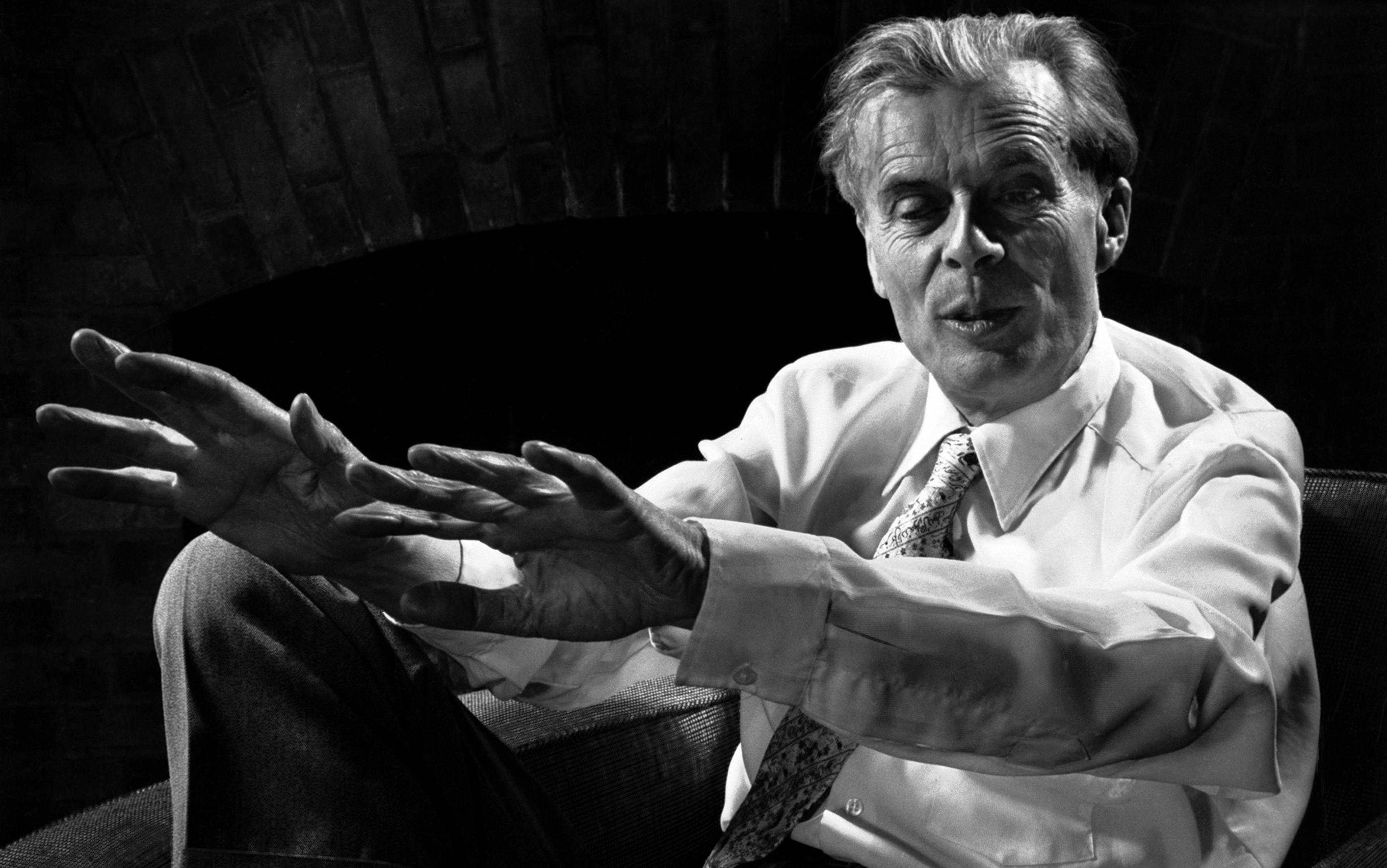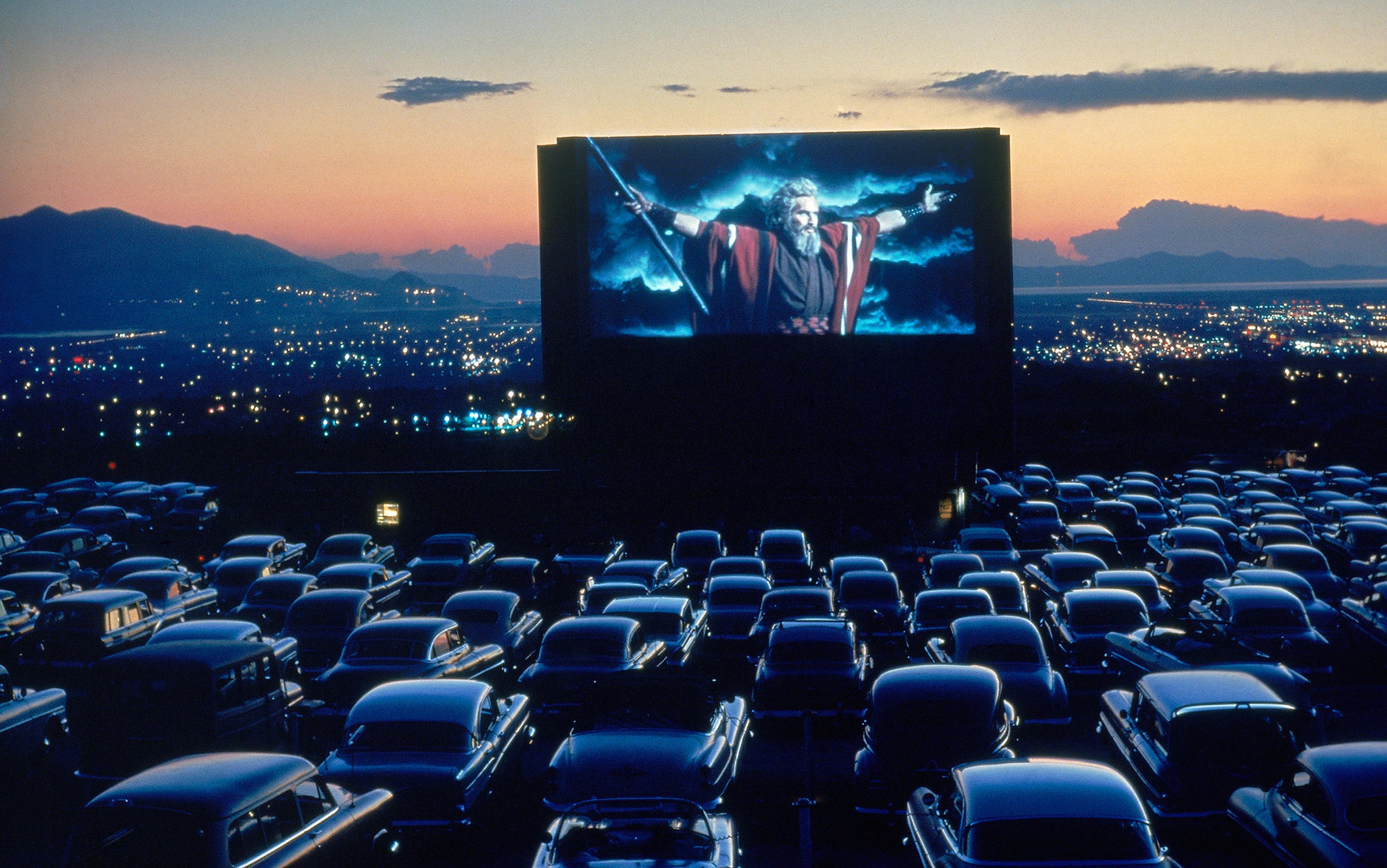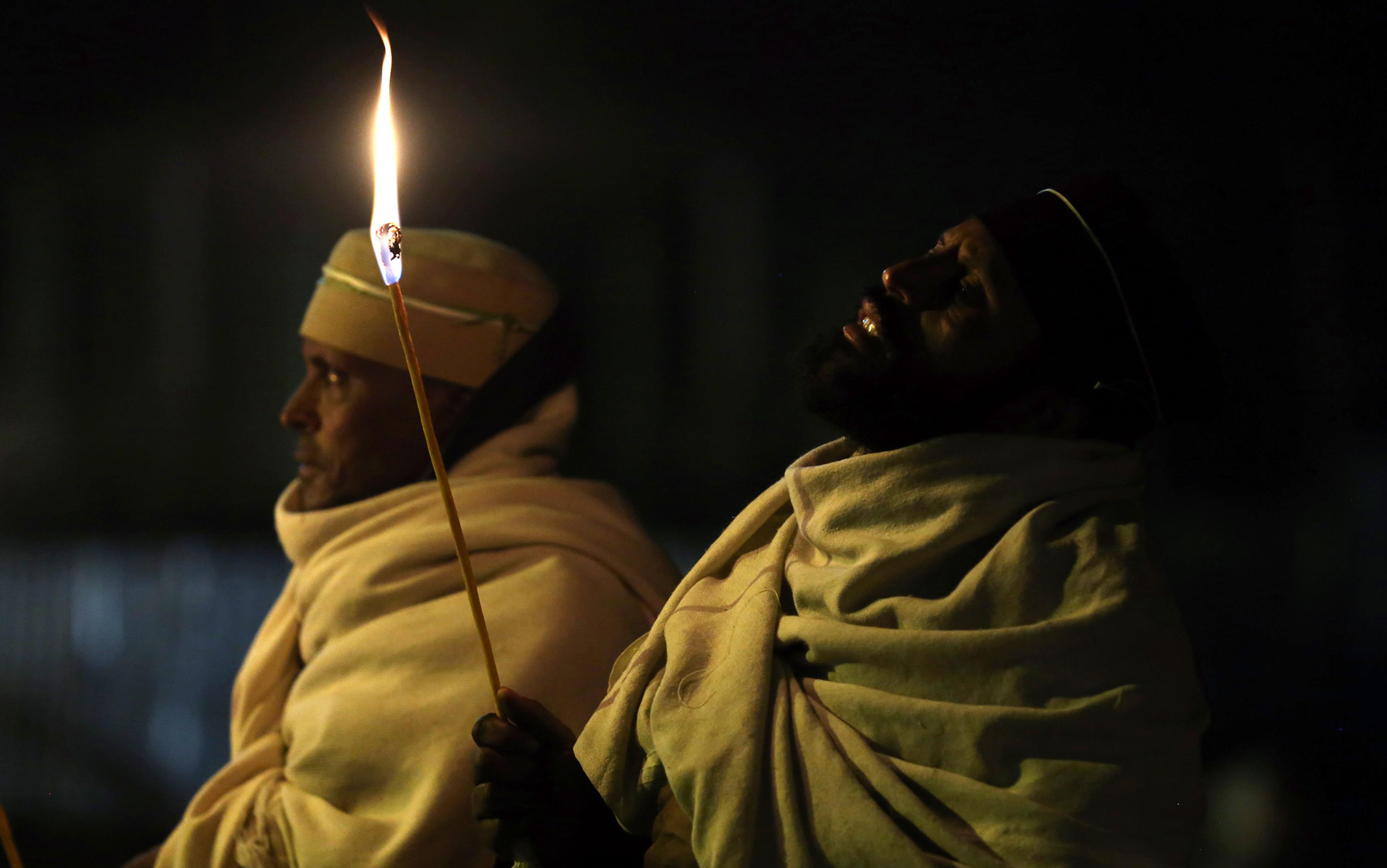I rejected Christianity at the age of 14, upsetting my grandmother by refusing to get confirmed in the Catholic faith of my upbringing. Partly it was intellectual issues: why would a loving and all-powerful God create a world with so much suffering? Partly it was ethical issues. It was a time when I was questioning my sexuality, and it seemed to me wrong not to allow a gay person to flourish through a loving relationship with a partner they are attracted to. But, most of all, Christianity just seemed very unspiritual. I got very little out of boring church services, and it seemed to be all about pleasing the old guy in the sky so you get to heaven. Science and philosophy seemed a more rational way to make sense of life, which ultimately led me to become a philosophy professor.
Despite rejecting religion, I always had a spiritual sense, a sense of a greater reality at the core of things, what William James called ‘The More’. But I would connect to ‘The More’ in my own way, through meditation and engagement with nature. In other words, I was a signed-up member of the ‘spiritual but not religious’ grouping.
And thus I remained for a couple of decades. I was happy in this club. There was no ‘God-shaped hole’ in my life. But, more recently, a few things have changed. The first was intellectual. Most of my fellow philosophers are persuaded either by the arguments for the very traditional idea of God, or by the case for Richard Dawkins-style atheism. I’ve come to think that both sides of this debate have something right.
In terms of the case for atheism, I remain as convinced as ever that the suffering we find in the universe is powerful evidence against the existence of a loving and all-powerful God. But I’ve also come to think there are powerful considerations in support of something Godish. One is the fine-tuning of physics for life, the surprising discovery of recent decades that certain numbers in physics are, against incredible odds, just right for the emergence of life. The second is psycho-physical harmony, the improbable alignment between consciousness and behaviour that is presupposed in any evolutionary story of the character of our conscious experience. All this was laid out in my recent book Why? The Purpose of the Universe (2023).
I now think the evidence points towards a hypothesis that John Stuart Mill took seriously: a good God of limited abilities. This hypothesis is able to account both for the imperfections of our universe – in terms of God’s limited abilities – and for the things about our universe that are improbably good, such as fine-tuning and psycho-physical harmony. God would have liked to make intelligent life in an instant, or by breathing into the dust as we see depicted in Genesis. But the only way God was able to create life was by bringing into existence a universe with the right physics that would eventually evolve intelligent life. God made the best universe they could.
The second change was discovering the great diversity of forms of Christianity. Wide reading and conversations with various Christian thinkers have given me a deeper sense of the mystical traditions of Christianity, as well as its radical roots. I haven’t changed my mind on the form of Christianity I rejected in my youth. However, I now think there are forms of Christianity that fit quite well with the limited God I now believe in.
The universe is in some sense inside God, and perhaps God is inside the universe
The final change was coming to see the value of a spiritual community. Being ‘spiritual but not religious’ can be a bit lonely and hard to sustain. Religion involves rituals and practices that bind people together across space and time, marking the seasons and the big moments of life – birth, marriage, coming of age, death – forming a bridge between society and the Divine. I feel happier and closer to the Divine when I can connect to it in relation to others.
The idea of God I received as a child was of something completely separate from the universe. However, there are versions of the God hypothesis that don’t see things in such binary terms. There are pantheists, who think that ‘God’ and ‘the universe’ are simply different words for the same thing. This seems like just atheism repackaged. But there are also pan-en-theists, who don’t quite identify God and the universe, but nor do they think they’re entirely separate. Panentheists believe there is an intimate connection between God and the universe; the two overlap. The universe is in some sense inside God, and perhaps God is inside the universe.
These ideas of the Divine resonate with me spiritually, in a way that the purely supernatural idea of God does not. There is a fit with the conviction of many mystics, as well as the English Romantic poets, that the Divine is present in all things. William Wordsworth spoke in the poem Tintern Abbey (1798) of ‘Something far more deeply interfused.’
Moreover, there is a close fit with the philosophical theory I have spent much of my career defending, namely panpsychism: the view that consciousness goes all the way to the fundamental building blocks of reality. For panpsychists, the particles or fields that make up our universe have their own very rudimentary form of conscious experience, and the highly complex consciousness of the human or animal brain is built up from these more basic forms of consciousness. Panentheism is more at home in a panpsychist picture of reality, as it’s easier to make sense of the Divine pervading the universe if the universe is filled with consciousness than it is if the universe is a cold, unfeeling mechanism.
Panentheism may also help us to make sense of the idea of a God that is subject to limitations. If God had to create the universe inside themselves, then it could be that the timeless and unchangeable nature of God imposed certain limitations on what could be created. Perhaps the deep simplicity and unity of God’s nature ensured that creation had to begin with a very simple starting point – the Big Bang – and could only progress to complexity over time.
I my book Why? I defended such views of our origins over both traditional atheism and traditional Western religions. What’s happened since then is that I’ve come to see that panentheism fits quite well with certain interpretations of Christianity.
Many people assume the essence of Christianity is as follows. We are all sinners and so we deserve to burn in hell for eternity. Fortunately, Jesus took the punishment we deserve and, as a result, if we accept Jesus’ sacrifice on our behalf, we’ll go to heaven to live with God when we die. Everyone who doesn’t accept Jesus’ sacrifice will burn in hell forever.
In fact, this is only one interpretation of Christianity, associated with the Protestant Reformation, although a similar view was defended by Anselm of Canterbury in the 11th century. It’s also, in my opinion, one of the most implausible theological doctrines in any of the modern global religions. I don’t think anybody deserves to burn in hell for eternity. And, even if we did, it wouldn’t achieve anything to punish an innocent man in our place. The word ‘Jesus’ is for many deeply associated with this picture, and so, in discussing an alternative, I’m going to borrow a trick from the author Francis Spufford and use the Hebrew version of Jesus instead: Yeshua.
Christianity is a little bit like quantum mechanics. In terms of the mathematics, quantum mechanics is our most successful scientific theory. The problem is nobody knows what on earth is going on in reality to make those equations work in predicting what we will observe. There are many different interpretations with no consensus on which is the correct one. Likewise, with Christianity, all Christians agree that Yeshua had some central role in the purpose of the universe. But there is no officially agreed view on the mechanics of that.
The views that are more plausible to my mind revolve around love and unity rather than sin and punishment. According to the participatory theory popular in the Eastern Orthodox Church, the Yeshua stuff was all about God becoming more similar to us so that we can become more similar to God. God wants us to share more deeply in their form of existence. But there’s a problem: the timeless, transcendent aspect of God is radically different from, say, a naturally evolved human being. Without God becoming more similar to their creation, the difference between God and creation is just too great for the two to share a common form of existence. The philosopher Robin Collins suggests this is analogous to the fact that ‘a tree branch cannot be grafted into a horse, only another tree; the horse is too alien for it.’ It is only once God, through Yeshua, shares in temporal, physical existence that the gap is bridged between God and creation, creating the potential for human beings and indeed the whole of creation to share more deeply in God’s form of existence.
If Yeshua rose as a physical body, then surely he could have revealed himself to millions
This view still doesn’t make sense to me if we’re assuming that God is all-powerful. If God can do anything, then they could have created us to share in their form of existence from the beginning, rather than subjecting us to millions of painful years of evolution. But if God is not all-powerful, then maybe they are on their way to creating a perfect universe but are only able to do this in two stages. In the first stage, they create an OK universe, one with the right kind of physics to eventually evolve intelligent life. Next, when creation has evolved enough, God begins to bring the universe to perfection by becoming more intimately involved in it, sharing in its nature that it can share in their nature. Perhaps this is a process that is still continuing – and maybe needs a bit of help from us – but which took a radical and decisive step forward in the events surrounding Yeshua.
Learning about this form of Christianity removed some of my big objections to Christianity. But the resurrection was still a big stumbling block. If Yeshua rose as a physical body that could be seen and touched, then surely he could have revealed himself to millions, making the existence of God and the truth of Christianity an indisputable historical fact.
These worries were countered only recently when I read the biblical scholar Dale Allison’s book The Resurrection of Jesus (2021), which presents a powerful defence of a slightly unorthodox view of the resurrection.
For Allison, the resurrection appearances consisted of visions, rather than literally seeing and touching a body. In other words, the resurrection appearances of the first Christians were more like the resurrection appearances of Paul on the road to Damascus. We might imagine that, soon after the crucifixion, the followers of Yeshua started being thrown to the ground and overwhelmed by intense visions: first Mary Magdalene, then Peter, later the 11 remaining disciples, 500 people at once, James the brother of Jesus, and many others, much later including Paul. Despite not involving a body that could be physically seen and touched, such novel and intense visions, occurring both to groups and individuals, could be enough to render it undeniable that reality had fundamentally altered in some radically new way.
Crucially, Allison is not denying that the resurrection was physical. He thinks that historical evidence supports the tomb of Yeshua having been found empty. But he denies the familiar narrative we find in Luke’s Gospel according to which Yeshua rose from the tomb as a body that could be seen and touched, hung around for a period of time, and then floated up to heaven – an event known as the ascension. Rather, Allison believes the first Christians identified the resurrection and the ascension.
In Paul’s letters in the Bible, he describes resurrection bodies as continuous with but radically different from ordinary bodies, as a plant is continuous with but radically different from a seed. For Allison, the tomb was empty not because Yeshua had stood up and wandered off, but because he had been transformed into a radically new form of physicality, perhaps a kind of formless energy. If we move a little beyond what Allison claims and adopt panentheism – on which the universe is part of God – then for this formless energy to be absorbed into God involves this formless energy filling the universe. In other words, Yeshua brought God closer to us not by being punished for our sin but by filling the entire universe with God’s love.
Do we have any reason to take any of this seriously? Traditional Christian apologists argue that the resurrection is the only explanation for the strange events that followed the crucifixion. We have good historical evidence that many people, including one violent opponent of the Christian movement, had experiences that persuaded them that Yeshua was in some sense alive again. They must have been incredibly powerful experiences because they motivated them to vigorously defend this conviction at great cost to themselves, including the cost of their lives in some cases.
I agree with traditional Christian apologists that there aren’t any very satisfying non-Christian explanations of the historical origins of Christianity. On the other hand, I agree with the view popularised by Carl Sagan that extraordinary events require extraordinary evidence, and I don’t think we have extraordinary evidence for the resurrection. It’s perfectly rational for an atheist to hold that Christianity was sparked by some kind of rare mass hallucination, preferring that explanation on the basis that, while improbable, mass hallucination is less improbable than a resurrection.
However, what counts as extraordinary depends on your worldview. I have tried to show how a certain form of Christianity fits quite well with a panentheist view on which God is not all-powerful, a view I believe to be well supported by current evidence. Relative to that worldview, Christianity – at least the form I have outlined – is not extraordinary; it’s one possible hypothesis as to what the purpose of the universe might be. By accepting that hypothesis, we get a more satisfying explanation of the origins of Christianity than anything available to a non-Christian (although note that the explanation I support, outlined in the previous section, is somewhat different from that of the traditional Christian). In other words, while the evidence for Christianity is not sufficient to persuade an atheist, it may be sufficient to persuade someone whose worldview is consonant with the truth of Christianity.
Pragmatic considerations can play a role when the evidence doesn’t conclusively settle matters
I hasten to add, these matters are inherently uncertain. I’ve come to think there’s a reasonable chance that a certain form of Christianity is true; but there’s also a reasonable chance it’s false. My intellectual hero William James argued that, in situations of uncertainty, when the truth is of monumental importance, it can be rational to choose to believe. He gives the analogy of being stuck in the mountains with the only way of escaping being to leap across an enormous chasm between two precipices. Intellectually speaking, it is uncertain whether or not you can make it. But if you choose to believe you will make it, you raise the chances that you will succeed.
The analogy is not perfect, as nobody is suggesting that a religion is more likely to be true if we believe it. But James’s example shows how pragmatic considerations can play a role when the evidence doesn’t conclusively settle matters. To take a contemporary analogy, it’s highly uncertain whether human beings will deal with the climate crisis. But it can be rational to believe we will, if that belief can provide meaning and motivation.
Faith is not about certainty. It is fundamentally a decision to trust your spiritual experiences, and to trust a certain framework for interpreting and acting upon those experiences. Hindus interpret their spiritual experiences as awareness of Ultimate Reality at the core of one’s being, and respond by meditating to realise their identity with Ultimate Reality. Christians interpret their spiritual experiences as awareness of a loving creator, and pray to deepen their relationship with God. These decisions to trust certain experiences influence how you see the world, how you respond to other people, and how you engage with nature. For a person of faith, each moment of daily life is permeated with meaning and significance.
This openness to uncertainty allows for pluralism. If faith requires certainty, then people of faith must be certain that their religion is right, and hence certain that other religions are wrong. But for trust to be rational, it’s only required that we’re not putting our trust in something wildly improbable. If there’s a 30 per cent chance that my loved one will make it, then it’s rational to have faith that they’ll pull through. But if the doctors tell me the chances of survival are sadly less than 1 per cent, then my loved one and I should enjoy our last moments and prepare to say goodbye.
This doesn’t mean faith gets a free pass. If Dawkins is right, there’s less than a 1 per cent chance that God exists, in which case it’s irrational to trust in the tenets of a theistic religion. However, if Dawkins is wrong, it might turn out that more than one religion is probable enough to have faith in. I have come to think that Christianity, in a certain form, is a credible possibility. But I have no problem with the idea that other religions may also be probable enough for it to be rational to have faith in them. If it is highly uncertain which religion is true, it may be rational to bring in pragmatic considerations, such as which religion you feel culturally comfortable in, to select a faith to follow.
Finally, I want to bring in one crucial element I haven’t mentioned so far: the extraordinary teaching of Yeshua. His focus on the poor and the weak, his talk of loving your enemies and turning the other cheek, his attacks on those who overvalue tradition or social status, were light years ahead of their time, and have played a crucial role in shaping the modern ethical ideals that we still struggle to live up to. This in itself proves nothing. But, for me, it’s a vital element in the mix, giving credibility to the possibility that the events depicted in the New Testament describe some profound moment in the evolution of reality.
Life is short and much is uncertain. We all have to take our leap of faith, whether that’s for secular humanism, one of the religions, or simply a vague conviction that there is some greater reality. In deciding, it’s important to reflect on what’s likely to be true but also what’s likely to bring happiness and fulfilment. For my own part, I have found a faith that is certain to bring me happiness, and which is, in my judgment, probable enough to be worth taking a bet on.






